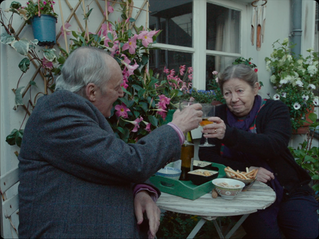Scream
- Charlotte Mansfield
- Oct 4, 2020
- 2 min read
Updated: Oct 28, 2020
“I want to know who I’m looking at”
(CONTAINS SPOILERS!)

In both film and life in general, masks give way to many connotations. They not only protect the wearer from the danger of contamination (in which we view them currently), but also shame. The anonymity provides greater freedoms for the individual, which while liberating can be abused. The use of masks in Scream goes further as to allow a singular cohesive identity to be performed by more than one individual, creating a feeling of omniscience and undefeatable terror surrounding the villains.


Wes Craven’s cult hit is highly praised for not only reigniting love for horror in an ever-changing industry but for turning the rules of the genre on its head. The lack of supernatural presences in the movie is not felt in that fear is instilled in the audience by the masks’ dehumanisation of the killers, as well as their ability to seem to be in two places at once, or emerge from impossible routes. A feel for the non-human is created by the contorted face, which is darkly comedic compared to famously intricate Venetian masks; the store-bought piece allows even those uninvolved in the murders to continue the fear-mongering in the daylight and cruelly mock the trauma of the main protagonist.


The masks simultaneously mock and appreciate the horror genre, particularly paying homage to 1970’s and 80’s slashers like Halloween, while the plot does the same. The “rules” not only referenced to but explicitly discussed by characters show the film to be incredibly self-aware in its own ridiculousness - which in itself is unnerving considering the seriousness and vulgarity of the crimes - and in its ability to continue twisting the pre-existing conventions of the genre. Admiration is expressed towards “scream queen” Jamie Lee Curtis’s large breasts, shortly before a central character is trapped in a garage door because of her own bust, and as a result becomes a victim herself. The myth of sin, promiscuity and the involvement of higher evils being justification for characters’ deaths is also disrupted, breaking “Final Girl" and virgin tropes. Our hero has no need for innocence and triumphs once her attackers are unmasked; perhaps their fatal mistake was revealing themselves at all.









Comments